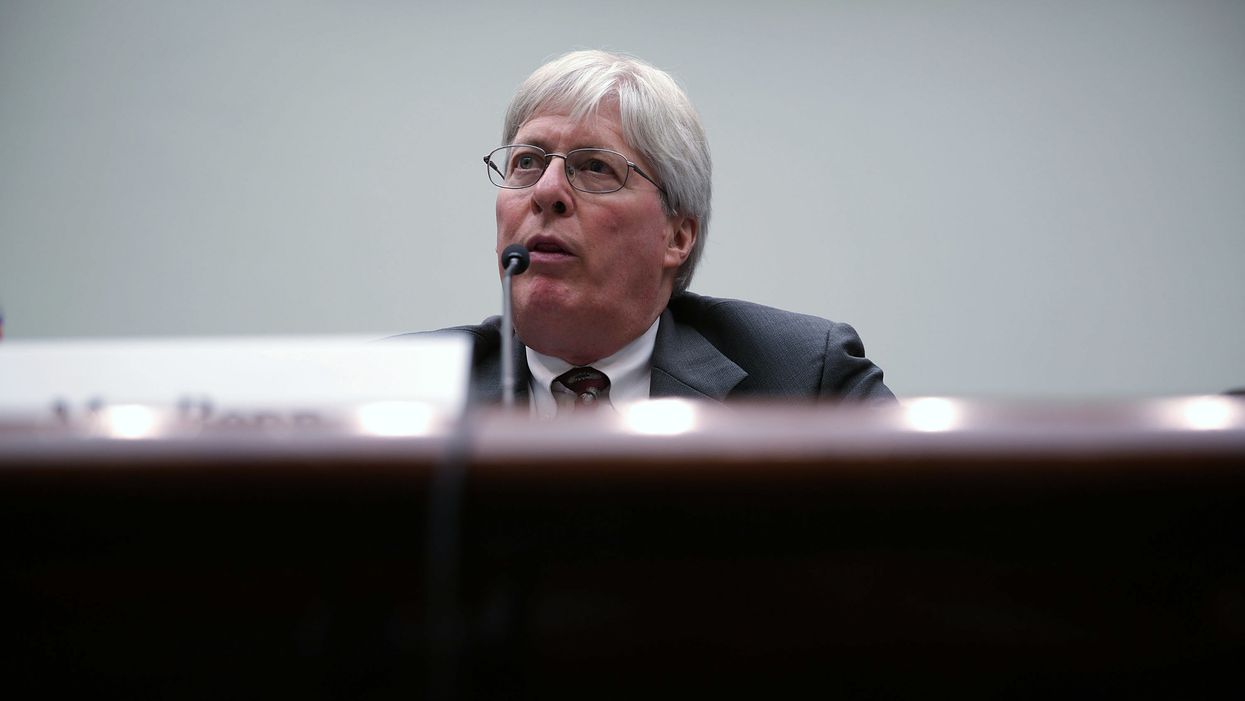Almost all the lawsuits about voting during the coronavirus outbreak have come from groups pushing to make things easier. One of the country's most prominent conservative election lawyers is pushing in the other direction.
In his latest suit, James Bopp Jr. has asked a federal judge to stop Virginia from allowing fear of getting sick to be an excuse for voting by mail in the state's congressional primaries next month. A similar federal suit against Nevada's loosening of the rules was dismissed three weeks ago.
At a time of overwhelming sentiment that voters should not have to choose between their health and their civic responsibility, especially when the mail is available as an alternative to a voting booth, Bopp is making a contradictory argument.
His Virginia suit, filed last week, says going to the polls should be no more dangerous than going to the store for basic services — which people in the state are allowed to do even though a statewide stay-at-home order remains in effect until June 10.
"The same social distancing and good hygiene practices — which are effective for preventing the spread of the virus when going out for essential services, like grocery shopping and other essential services — are also an effective way to prevent the spread of the virus for in-person voting," the suit argues.
The primary has been postponed two weeks to June 23, and Democratic Gov. Ralph Northam has issued an executive order that because of the Covid-19 outbreak anyone may obtain an absentee ballot by claiming the "illness or disability" reason on the application.
It is the last election in the state where any excuse will be required. The General Assembly relaxed the rules this winter, but not before July.
The Lawyers' Committee for Civil Rights Under Law filed a friend-of-the-court brief on Thursday, arguing that Virginia voters have a constitutional right to cast their ballots by mail in light of Covid-19. Restricting this access could disenfranchise millions, the group says.
Bopp's suit, filed on behalf of six northern Virginia voters, disagrees on both fronts and says Northam has exceeded his emergency powers. That was the argument he used when Nevada Secretary of State Barbara Cegavske decreed that anyone could vote by mail in the June 9 primary. A federal judge tossed that suit May 1.
The new suit says a significant increase in the number of people voting absentee could also lead to requested ballots getting lost in the mail, arriving late or never arriving at all.
But attorneys for Virginia say changing the election procedures now — with the June 23 primary just a month away — would cause widespread confusion and voter disenfranchisement.
"And the stakes here are even higher than in a typical case because the challenged actions protect not only citizens' right to vote, but also the health and safety of voters, poll workers, election officials, and others who would otherwise be at risk from a highly contagious virus," the state's lawyers argue in their response to the suit.




















Marco Rubio is the only adult left in the room